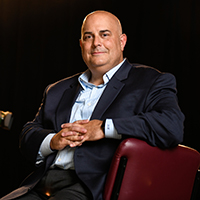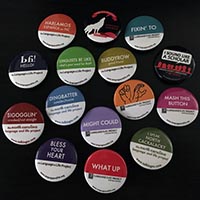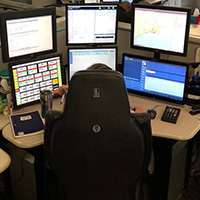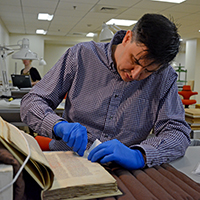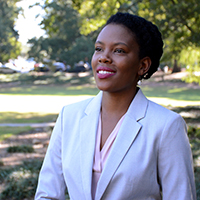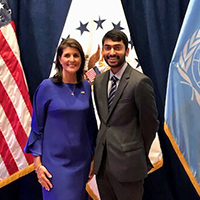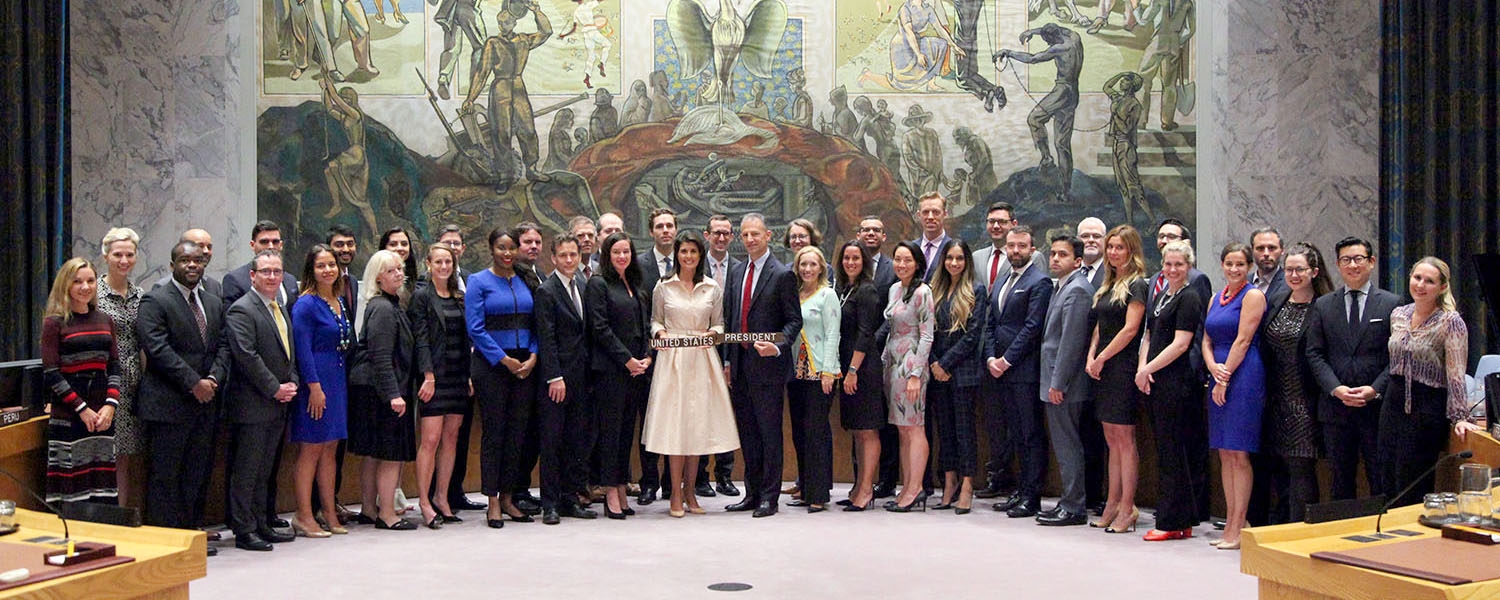
Interning atthe UN
NC State student Amith Mandavilli started his Tuesday at a United Nations Security Council meeting. On the agenda: Russia and North Korea.
A junior double-majoring in political science and biological sciences, Mandavilli sat in as part of his internship at the U.S. Mission to the United Nations. During the meeting, he observed and took notes as U.S. Ambassador Nikki Haley and other officials discussed Russia’s role in helping North Korea skirt recent sanctions.
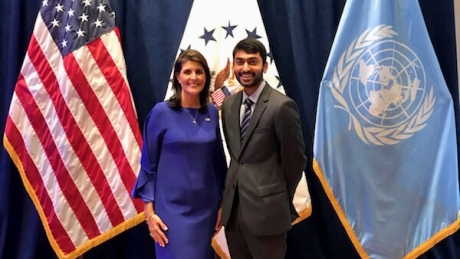
He spent the afternoon drafting a “cable,” or a two-page report of the meeting, which was cleared by a U.S. expert on North Korea and sent to members of the U.S. Department of State and other foreign service officers in postings across the East Asia Pacific region.
“In that instance, my job was to give an intelligent interpretation of what occurred at the meeting, which allowed me to apply my analytical skills,” Mandavilli says.
All in all, it was a pretty standard Tuesday, he says, one of many impactful experiences from his semester-long stint at the U.N. With support from college donors, Mandavilli served as one of 15 interns at the U.S. Mission this fall — and one of only two interns in the political affairs division. The prestigious position provided an up close and personal exploration of foreign policy and international relations at the highest level.
His tasks included escorting foreign nationals and other distinguished visitors throughout the U.N. headquarters. “It was fun to meet those people and have a conversation about where they were from,” he says. “It was educational for me.”
Working closely with U.N. staff, Mandavilli also attended open and closed Security Council meetings with member state representatives from around the world. He took notes and wrote brief reports on issues ranging from peacekeeping efforts in Africa to the jailing of journalists around the world. In early November, he even had an opportunity to officially staff a Security Council meeting, sitting directly behind U.S. deputy ambassador Jonathan Cohen during the proceeding.
“One skill I learned was how to process information, distill what’s important and understand the context in which the information is being discussed,” Mandavilli says. “If you do it right, it’s cool because you feel like a mini-expert on an issue.”
After the 73rd session of the U.N. General Assembly convened in September, Mandavilli attended a series of meetings on the ongoing civil war in Syria. It was a sobering learning experience, he says, but one he ultimately came away from hopeful that new strategies might bring peace and political stability to the region.
“The officer I was working under had served in the U.S. Embassy in Syria, knew the Syrian people first-hand, and was personally invested in making a difference on this issue,” Mandavilli says.
“It was inspiring to see these great civil servants have this personal stake in seeing a project through,” he continued. “People’s lives really do hinge on what happens here.”
Getting New Perspectives, After Hours
Some of his favorite memories occurred outside of work as he got to know other interns from around the world. He went to a New York Yankees baseball game with friends from Sweden, the Netherlands and Belgium, had late-night debates over the future of the trans-Atlantic alliance, and explained the complexities of American politics to interns from other nations.
“Seeing how we integrated the histories of our various countries into the questions we were talking about was a very intellectually rich and stimulating experience,” Mandavilli says. “Also, seeing that other people have problems that they are trying to address makes me more aware of my place in the world, how big the world is, and how little I know.”
I was in a position where I could have a real impact.
Mandavilli also had the unexpected opportunity to perform with the U.N. Symphony Orchestra. After learning that the symphony’s percussionist broke his arm, Mandavilli started attending rehearsals with the group and went on to perform Mozart’s Requiem at the U.N.
“I found it very poetic that music was literally pulling people together from different parts of the world into a common cause,” he says.
His internship ended in November. In the spring, Mandavilli will return to campus to continue working toward his two degrees. He’s already looking forward to two graduate-level courses: Special Topics in Political Science and European Politics.
Building a Resume in the Political Realm
Mandavilli’s U.N. internship adds to a growing resume of hands-on experience in the political realm. He’s previously interned in the district office of Congressman David Price; at the U.S. Department of State’s Bureau of Democracy, Human Rights and Labor; and in the office of North Carolina Senator Jay Chaudhuri.
He says all those positions accelerated his interests in local and national policy — interests he didn’t discover until his sophomore year at NC State.
Mandavilli, who grew up near Raleigh, initially enrolled to study biochemistry. He had aspirations to become a doctor. “But I was a pretty confused student,” he says. “I was intellectually capable of getting through my science classes, but I didn’t have a passion for it.”
Then, the 2016 election happened, which led him to reevaluate his course of study. He says the election opened his eyes to the polarization of political life and how difficult it was for Americans to discuss important issues in a productive way. “I started thinking, ‘What does it mean to be an American?’”
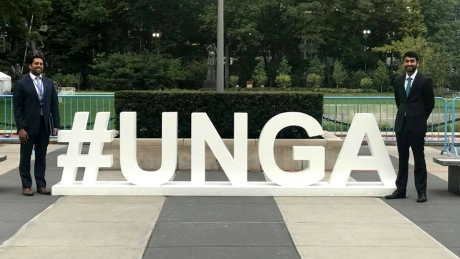
With that question in mind, he earned funding from the Caldwell Fellows program to trek through India, where his family emigrated from. Mandavilli says he experienced not just a different country, but a different civilization. His time in India helped him clarify and understand American values, such as constitutional rights, religious freedom and “the importance of being a land of immigrants.”
Upon returning to campus, he decided to explore those issues further, switch to a double major in political science and biology, and pursue his various internships. For two semesters, he also served as a teaching assistant for religious studies professor Jason Bivins.
“What I was reading and what I was doing in my free time finally started to overlap with what I was doing in my classes,” Mandavilli says.
Mandavilli plans to graduate in May 2020. He’s not sure yet what’s next after college; however, he says his internship has provided proof that public officials can make a difference in the lives of others. It’s a responsibility he didn’t take lightly at the U.N.
“I wouldn’t leave work until I knew I had done a good job,” Mandavilli says. “I was in a position where I could have a real impact, and I wanted to make sure I was doing my job as a civil servant and also as a member of the human race.”

